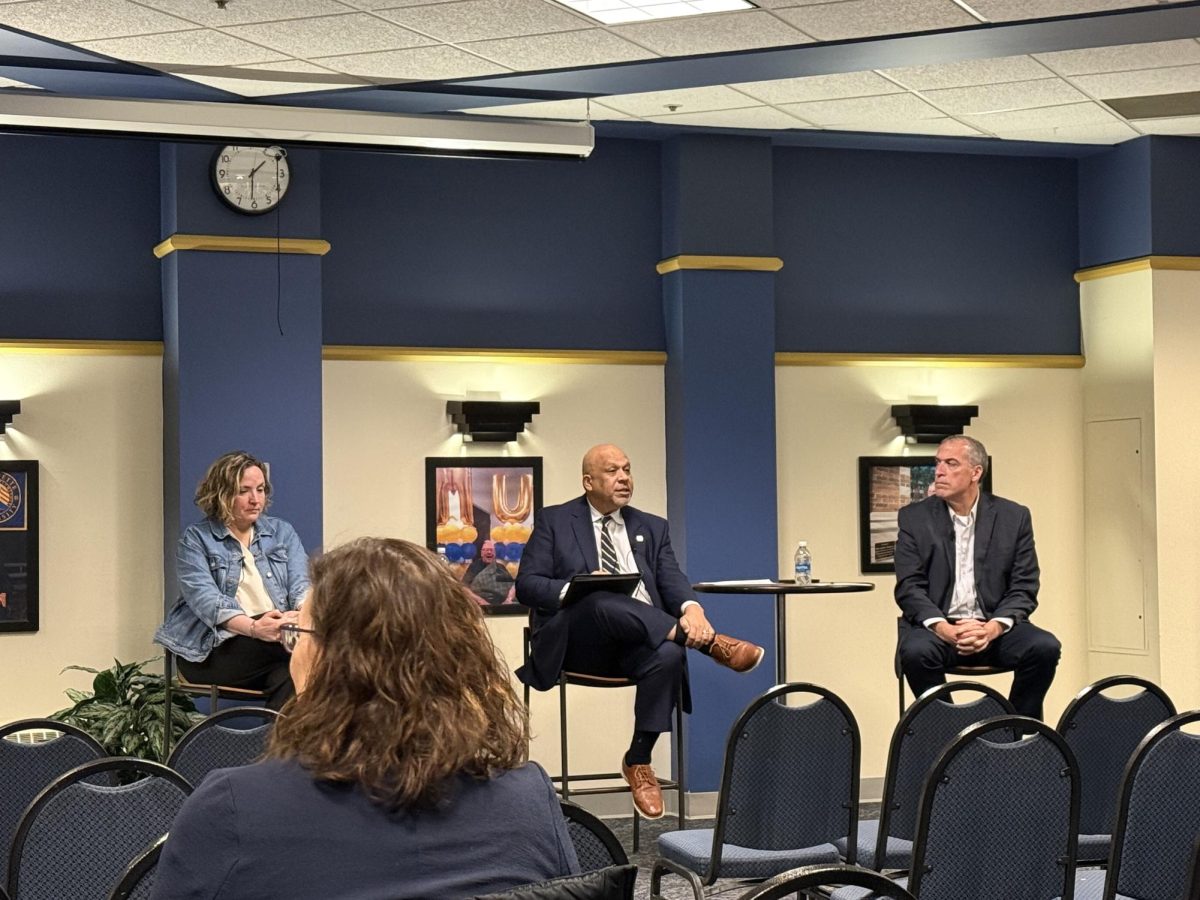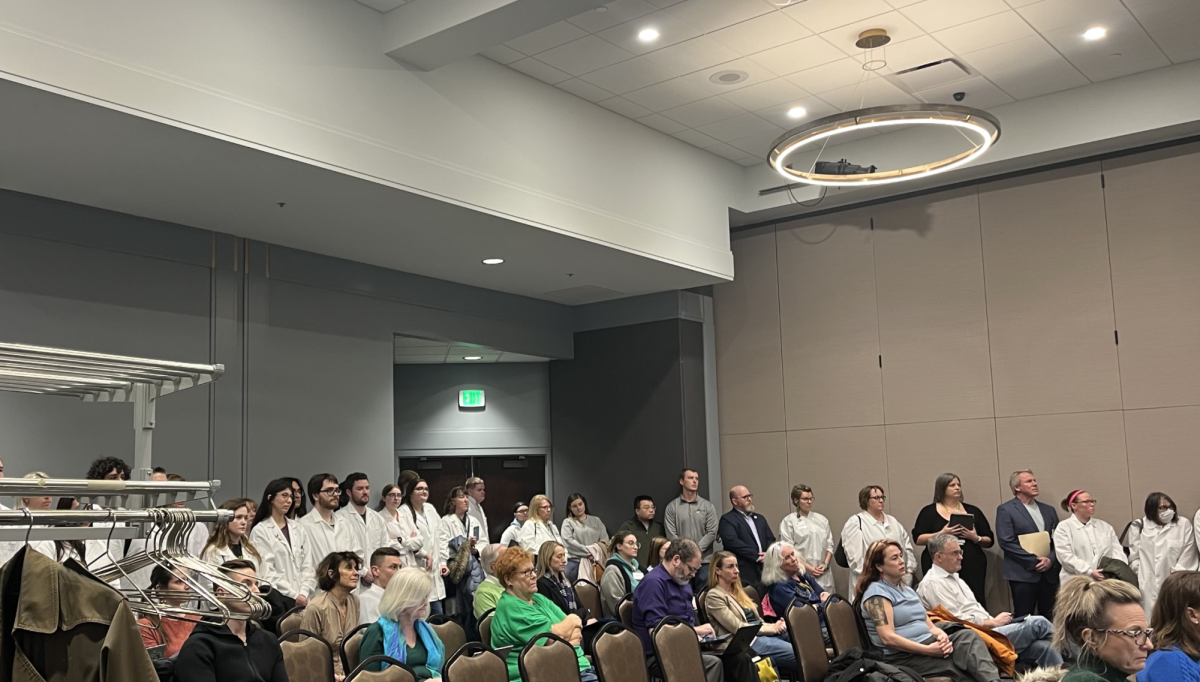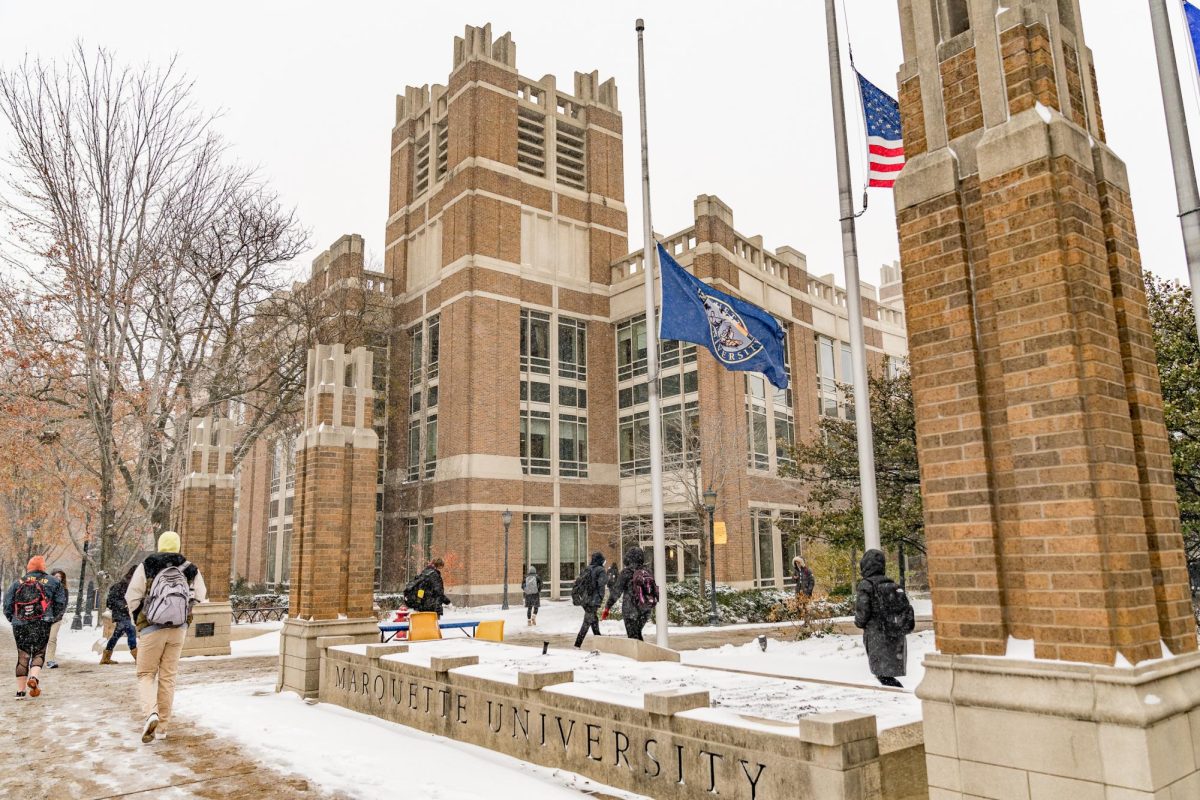During its monthly meeting held yesterday, the University Academic Senate heard a presentation on graduate education and research at Marquette. The senate also took care of minor house-cleaning items and listened to a report on undergraduate education.
Attendance at the meeting was noticeably thin, mostly due to scheduling conflicts and classes that forced several senators, and even Provost John Pauly, to miss the meeting or leave early.
The short agenda took only an hour to get through, compared the usual two hours.
Jeanne Hossenlopp, vice provost for research and dean of the graduate school, gave a Powerpoint presentation on a new set of rankings for doctorate programs that Marquette recently participated in.
The rankings, done for 2005-’06 by the National Research Council, took data and surveys from more than 5,000 doctorate programs at 212 universities. The majority of the basis for the rankings came from the level of research activity within the program, student diversity and how students performed and were supported by faculty.
“Overall, it was a long time coming for this report to come out,” Hossenlopp said. “And with Marquette being a first-time participant, the rankings could prove to be very resourceful and indicative of where our programs are at.”
Hossenlopp said 11 Marquette programs took part in the rankings, with others not participating because of a low number of graduates or the fact that the program was “too new.” The actual rankings were not revealed during the meeting.
“The most important thing about the rankings is not the rankings themselves,” Hossenlopp said. “But what is more important is for us as a university to take a critical look at the data because it can help us benchmark ourselves against peer programs and institutions, as well as showing how we can advance.”
The presentation also included a segment on faculty promotion and tenure.
After Hossenlopp’s presentation, the senate voted to approve a motion that would create doctorate and masters’ degrees in Clinical and Translational Rehabilitation Health Sciences offered through the College of Health Sciences and the department of physical therapy.
Sandra Cleveland, associate dean of the College of Professional Studies and chair of the university board of undergraduate studies, informed the senate that the board had unanimously agreed to add two new minors. The minors, Dance and Fine Arts, will both be offered through the College of Communication.
But with the creation of two new minors came the termination of two others. Cleveland said that minors in Art History and Studio Art were not needed with the creation of the more encompassing minor in Fine Arts.
Cleveland also announced the termination, which the senate approved, of the Electrical and Computer Engineering major. Cleveland said the new Electrical and Electronics major eliminated the need for the terminated major, but that the College of Engineering would continue to offer courses and allow students still enrolled in the major to finish it.








